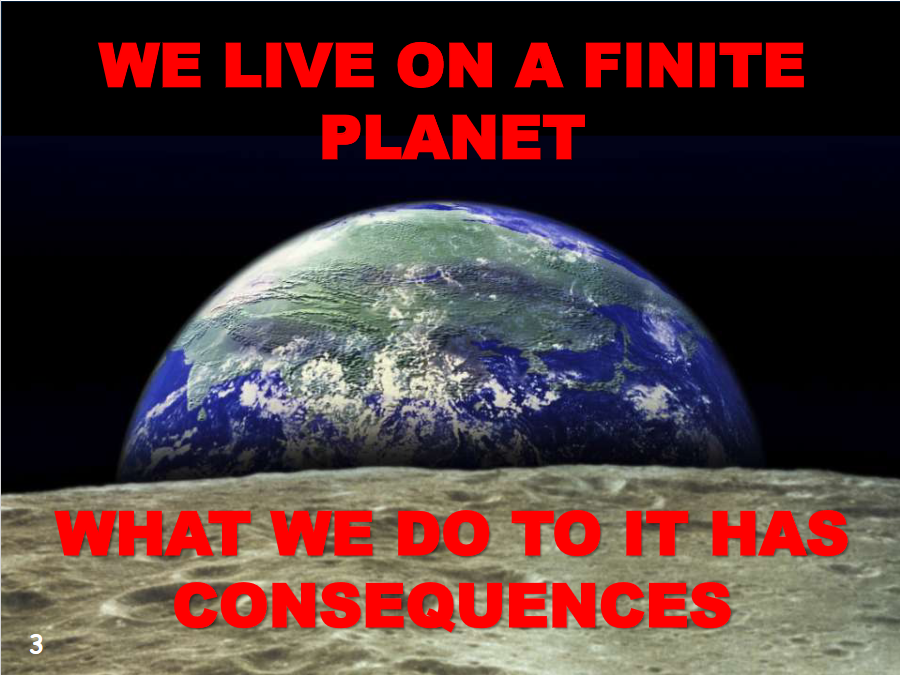UN Global Assessment Report on Disaster Risk Reduction:
Our World at Risk: Transforming Governance
for a Resilient Future 2022
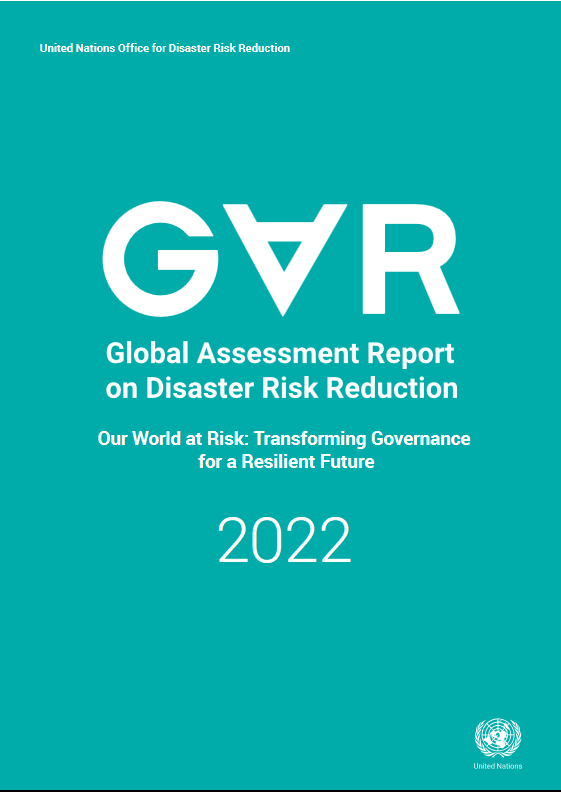
Preface
As this Global Assessment Report on Disaster Risk Reduction 2022 (GAR2022) goes to print, the world finds itself in some of the darkest days in living memory. The war in Ukraine becomes more devastating every day, and COVID-19 has affected every corner of the world. The latest Intergovernmental Panel on Climate Change report warns that without immediate and deep emission reductions across all sectors, keeping global warming below the 1.5°C threshold will be impossible.In the years since the previous GAR, the COVID-19 pandemic has shown starkly how a hazard can cascade across systems, but also how people and societies can adopt new behaviours when the problem and the needs for action are clear.
…
GAR2022 highlights country case study examples, tools and ideas for how to address systemic risk and transform how we think about risk – including addressing biases and prejudices of which we are sometimes not conscious. It also encourages action to make risk governance fit for purpose in the context of the climate emergency and an increasingly complex and interconnected world.
GAR2022 is a call to action to better understand and act to address systemic risk and to invest in building resilient communities and global systems. Whether we can achieve [this] in the coming years to 2030 is decisive in the race to reach the Sustainable Development Goal targets, for a sustainable and resilient future for all.
There is no time to waste; we need to act now.
DOWNLOAD THE COMPLETE REPORT….
Why is this report important to Australian voters?
Even if you haven’t been impacted directly, evidence from a wide variety of sources surveyed and reported on Vote Climate One’s Climate Sentinel News documents the fact that increasing numbers of humans (including those of us living here in Australia) have been battered, impoverished, injured and even killed in a growing crescendo of ‘natural’ disasters and catastrophes. Many of these ‘extreme’ events are clearly associated with the accelerating warming of our planet. Clearly we need to improve our disaster risk reduction.
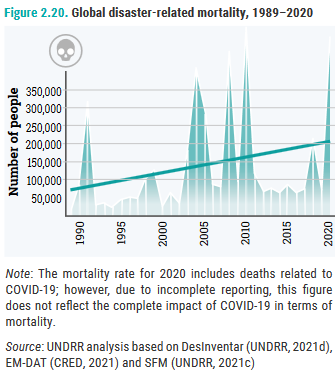
Not only are the disasters becoming more frequent, but they are both becoming more extensive in terms of their areas of impact and numbers of people harmed, and they are beginning to concatenate/overlap. Here, the next disaster may follow the first disaster so closely that people affected have not had time to recover fully from the first — greatly increasing their impoverishment and diminishing their hopes for a better future. The repeated floodings of northern coastal areas of NSW and areas of Queensland including Brisbane are clear examples of this.
In line with the UN IPCC’s Assessment Reports on Climate Change, the UN has published a series of Global Assessment Reports on disaster risk reduction and management. Here the focus is on identifying disaster risks and working out how to avoid/control the risks and minimizing the consequences of those that actually happen. Much of the analysis reflects the logic of a complex systems engineering analytical point of view.
Part I of the present report looks at the concept of risk in complex social systems and the roles of human actions in generating risk and what people need to learn from this.
Part II focuses on the roles of human biases and communications in creating and managing risks associated with the social systems.
Part III explores possible solutions for better understanding, managing risks, and risk mitigation strategies in the social systems exposed to the risks.

Here, Chapter 12 explores how we can transition from our existing chaotic and ineffective states of ‘ungovernance’ based on ‘beliefs’ of the day, to rational, evidence-based thinking about risky aspects of complex system in the real world. A couple of days ago, I considered in some detail the differences between believing and thinking in a major essay, Corrupt leaders, casual media, gullible believers.
How and to what extent our Government leaders come to understand and apply the ideas and concepts explored, explained, and developed in this UN Assessment Report will have a profound impact on the future qualities of life we can achieve as Australian citizens.
We Australians have a choice to make on Saturday 21st May
What kind of people do you want to be responsible for governing our country now that we are on the cusp of what will be probably the historically most crucial decisions relating to how we manage the accelerating climate crisis, along with possibly increasingly virulent pandemics (e.g., H5N1 Avian Flu potentially crossing species barriers) as ecosystems become more chaotic with warming: ● Scotty the marketing guru who is Capt Humbug for his troop of puppets and knaves peddling faith and belief in the fossil fuel industry? Or ● Independent thinkers and green parties who have publicly committed themselves to tackling the climate emergency as their first priority if elected to Parliament?
If you believe that our present COALition government will govern in your interests rather than their patrons in the fossil fuel and related industries, then go with the flow and don’t concern yourself with the likely consequences of going down their fossil fueled road towards runaway global warming. On the other hand, if you think it is better to work for a sustainable future where your children and their children can hope for a happy future, Vote Climate One can help you elect a government that will actively lead and support this effort.
Our Climate Sentinel News provides access to factual evidence about the growing climate crisis to support your thinking; and our Traffic Light Voting System gives you easy to use factual evidence about where each candidate in your electorate ranks in relation to their commitment to prioritize action on the climate emergency. This should make it easier to decide your voting preferences before confronting a long ballot paper in the voting booth.
We need to turn away from the the Apocalypse on the road to hothouse hell, and we won’t do this by continuing with business as usual!
It seems to have taken the clear thinking of Greta Thunberg, a 16 year-old girl who concluded school was pointless as long as humans continued their blind ‘business as usual’ rush towards extinction.
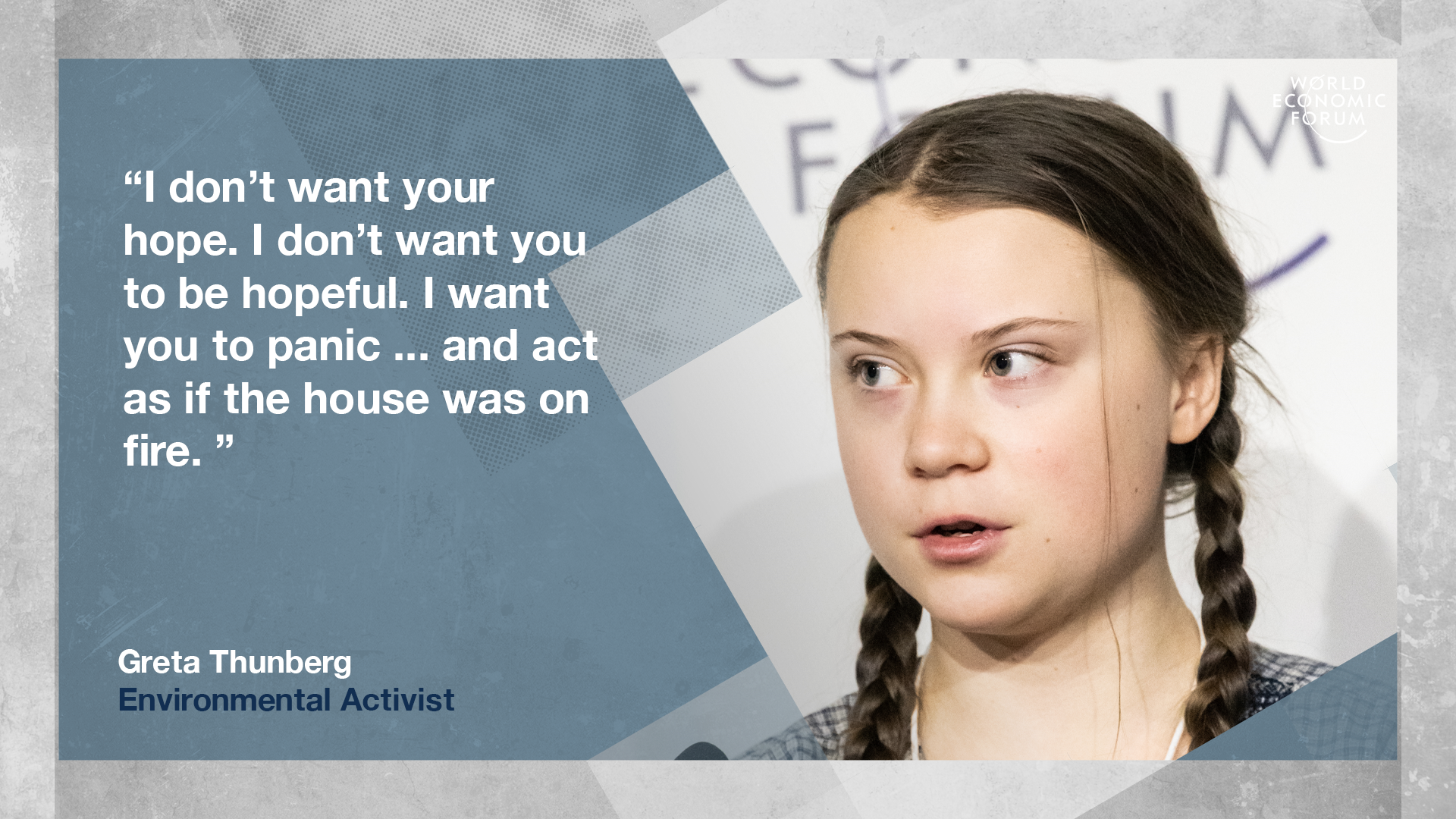
In other words, wake up! smell the smoke! see the grimly frightful reality, and fight the fire that is burning up our only planet so we can give our offspring a hopeful future. This is the only issue that matters. Even the IPCC’s hyperconservative Sixth Assessment Report that looks at climate change’s global and regional impacts on ecosystems, biodiversity, and human communities makes it clear we are headed for an existential climate catastrophe if we don’t stop the warming process.
Scott Morrison and his troop of wooden-headed puppets are doing essentially nothing to organize effective action against the warming. In fact all they doing is rearranging the furniture in the burning house to be incinerated along with anything and everyone we may care about.
In Greta’s words, “even a small child can understand [this]”. People hope for their children’s futures. She doesn’t want your hopium. She wants you to rationally panic enough to wake up, pay attention to reality, and fight the fire…. so our offspring can have some hope for their future.
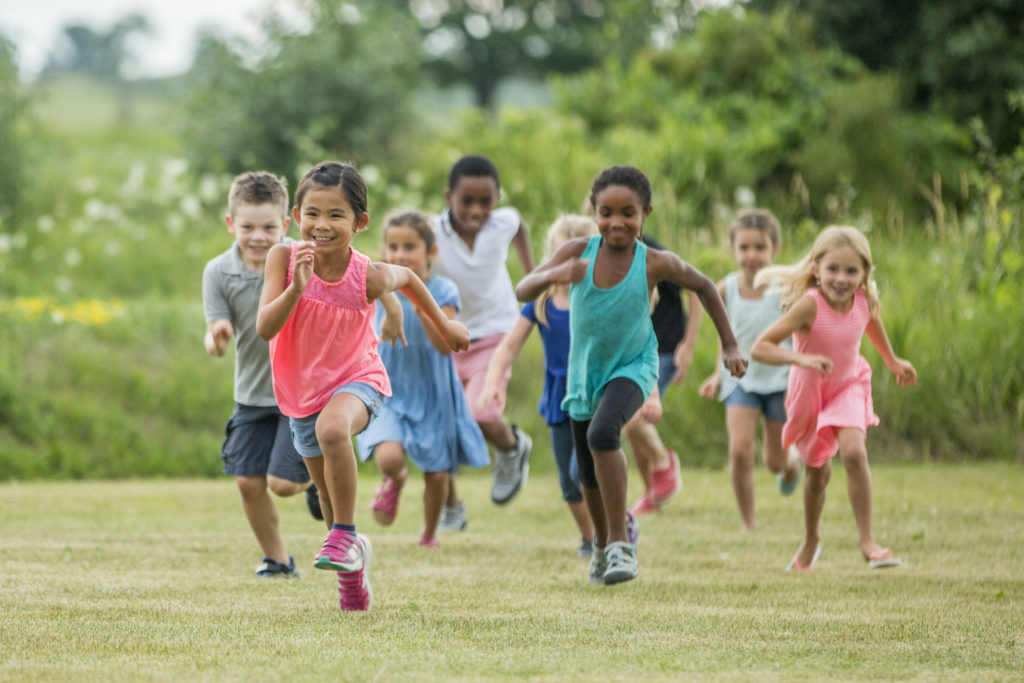
Featured image: We live on a finite planet – what we do to it has consequences. From William P. Hall (2019). We’re told we are facing climate and ecological emergencies – Is it so? What do we do about them?
